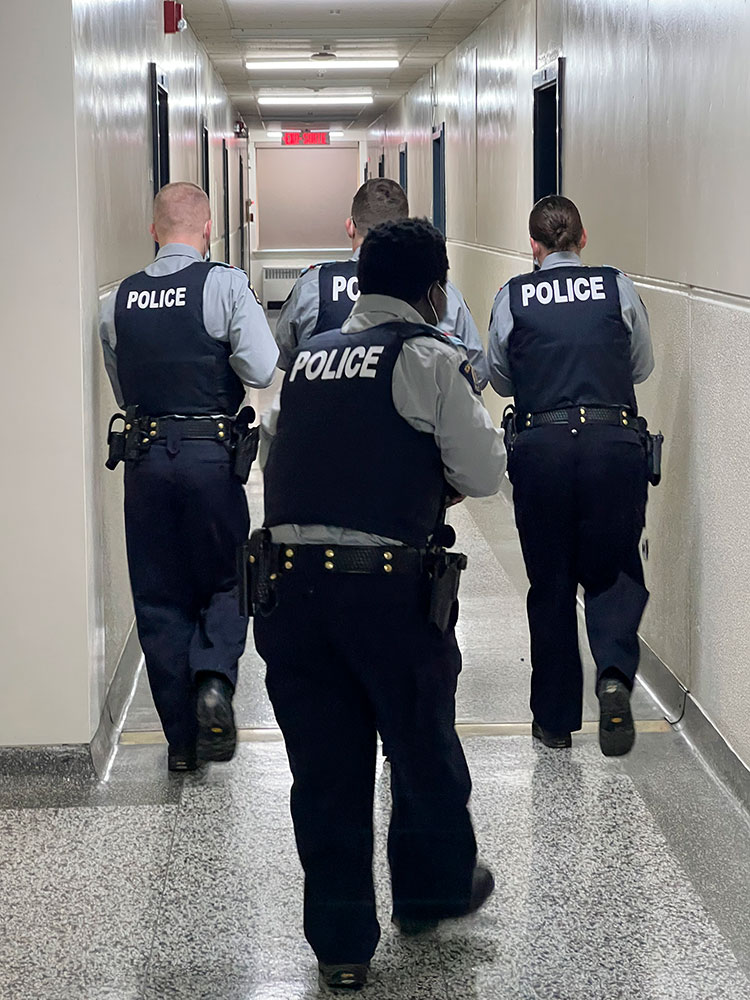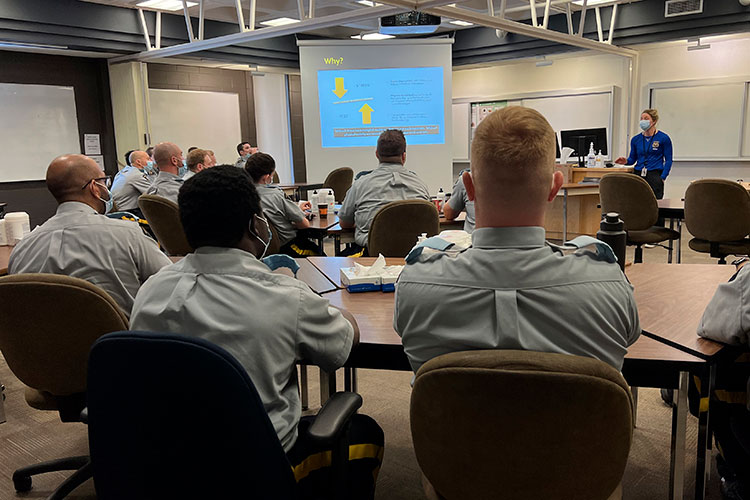Week 24: Puzzle pieces coming together
Immediate Action Rapid Deployment test

This week, cadets show what they learned in Immediate Action Rapid Deployment (IARD). Instructors test each cadet’s ability to make confident decisions and apply intervention techniques. Cadets need to show they can spot when a threat occurs and what kind of threat, while being aware of public safety.
In the field, IARD training becomes part of RCMP members’ ongoing and regular training. This way they get up-to-date knowledge and skills on current best practices as they emerge.
Everything we have learned in the past six months comes together like pieces of a puzzle within minutes of starting IARD training.
Crisis intervention and de-escalation
Call for service in the field can be complex and dynamic. Crisis intervention de-escalation (CID) is a major theme throughout the Cadet Training Program. This training focuses on communication and de-escalation.
They learn how different responses might affect an unfolding situation. Cadets focus on techniques including active listening, verbal and non-verbal communication. These CID skills can help reduce risk to the individual, public and first responders.
Excited Delirium Syndrome
Excited Delirium Syndrome (ExDS) describes agitated states with many causes, including drug use. Subjects experiencing this may exhibit paranoia, extreme restlessness, aggression and acute distress.
ExDS poses a risk to those affected and can produce negative effects on the body. Cadets learn to identify the signs of ExDS and how to respond, including using crisis and de-escalation skills. This training also emphasizes the importance of working together with other first responders and community partners.
Health and policing

Mental and physical well-being are important for us all. During training at Depot, cadets learn about behaviors that contribute to positive well-being.
Cadets take courses on workload balance, nutrition, fitness and sleep hygiene. Cadets learn practices for stress management, resilience, and mental wellness. They also learn what tools and resources they have access to if they need help.
I’ve learned that it is all about balance. Finding that proper ratio of healthy eating, exercise and sleep.
Human trafficking
Throughout training cadets have become very familiar with Criminal Code. This week, cadets learn about human trafficking, which is criminal offence under the Criminal Code.
Human trafficking may happen across or within borders and may involve organized crime networks. Cadets gain an understanding to recognize acts, victims and perpetrators of human trafficking.
Cadets also take a course on the Immigration and Refugee Protection Act. They learn about fostering crime prevention initiatives and collaborating with other agencies in the field.
- Date modified: